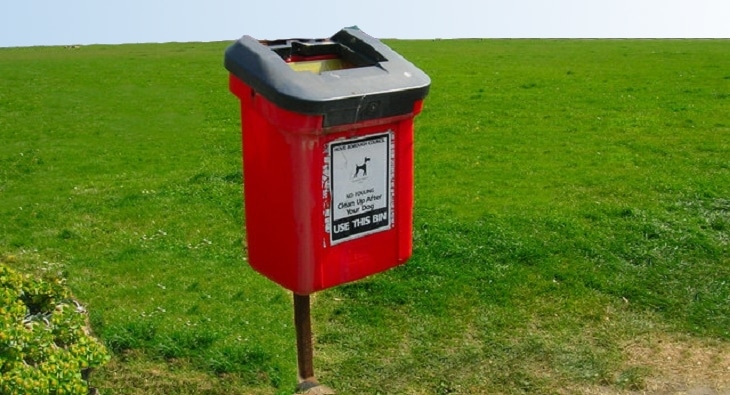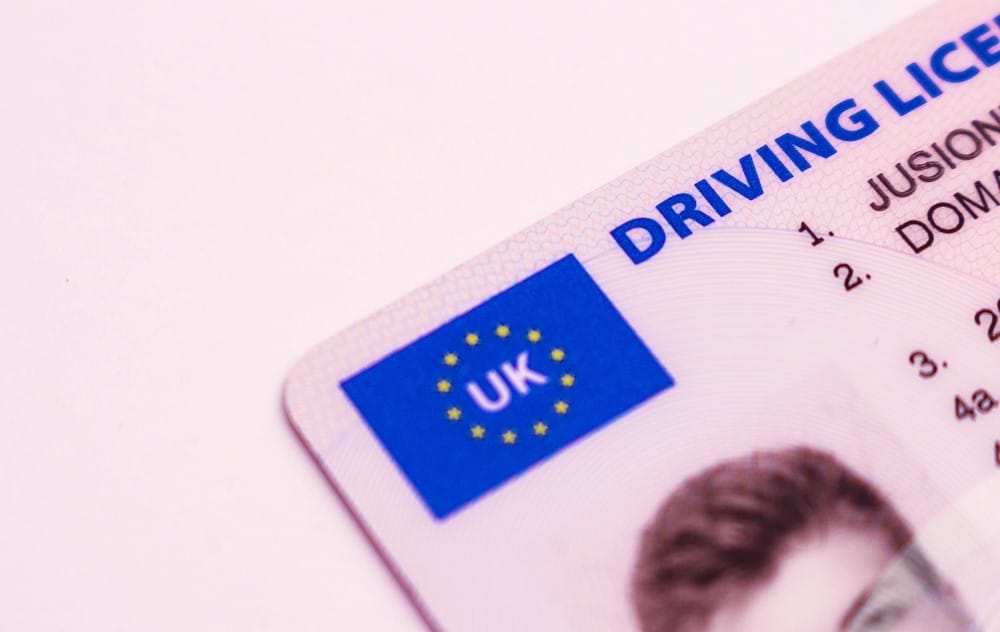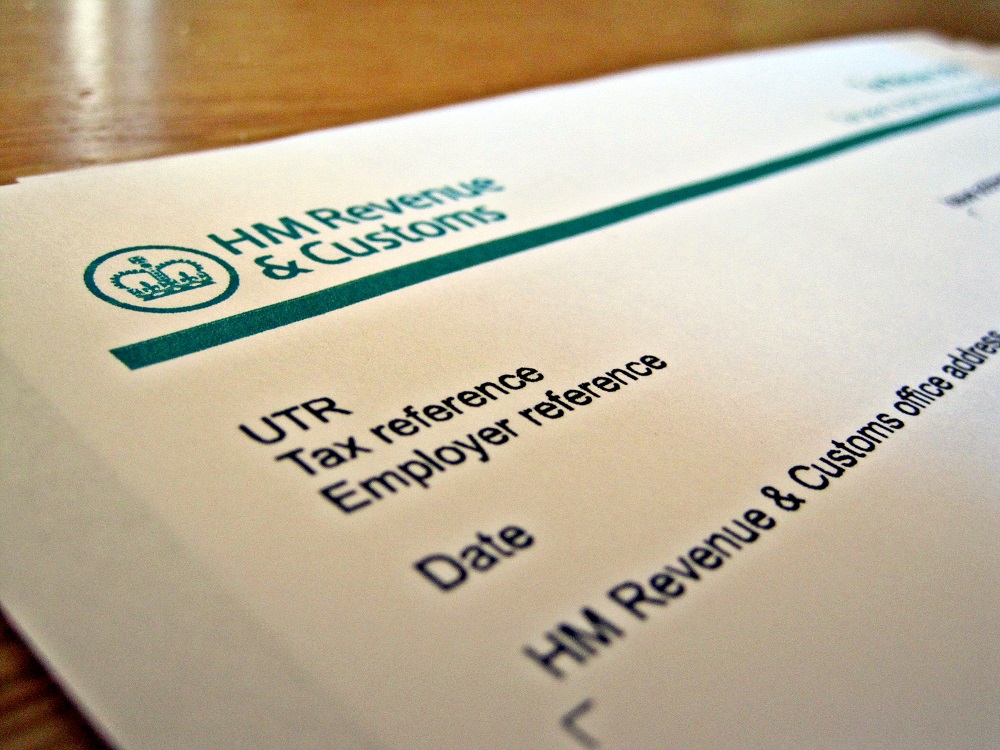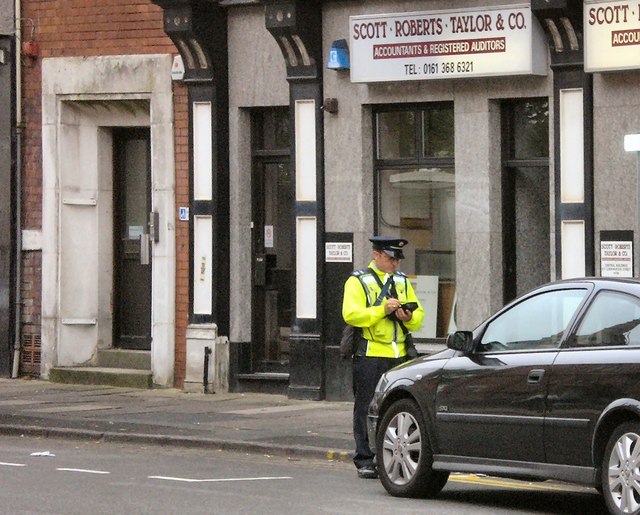Jasmine Birtles
Your money-making expert. Financial journalist, TV and radio personality.


No-one likes getting a fine, particularly if the charge seems unfair or it’s for something you didn’t know you were doing wrong. That’s why we’ve complied this list of 10 fines you don’t know about that could cost you £5,330!
 Did you know you’re required by law to renew your driving licence and your photo every ten years? Very few of us do, but if you’re pulled over and it turns out your driving licence or photo is out of date, you could be hit with a fine of up to £1,000!
Did you know you’re required by law to renew your driving licence and your photo every ten years? Very few of us do, but if you’re pulled over and it turns out your driving licence or photo is out of date, you could be hit with a fine of up to £1,000!
A recent survey has shown that 20% of drivers don’t know when their licence expires, despite the expiry date being written on the card itself, and one in ten confessed to driving with an out of date licence.
It’s important to keep your driving licence up to date because it helps the police identify whether you are who we say you are, and so helps catch people who are using licences fraudulently. Ultimately these laws are there to keep the roads safe and so it’s important to follow them.
If your license is out-of-date or you need to update your photo then you will need to renew your licence as soon as possible. It costs £20 to renew your licence via the DVLA website, which is a much cheaper price to pay than a hefty fine!
Read our full article on updating your driving licence here.
 If you’re self-employed then you’re responsible for filing your own tax return to the HMRC. Handing this in late, paying late or making a mistake can lead to you getting slapped with a nasty fine.
If you’re self-employed then you’re responsible for filing your own tax return to the HMRC. Handing this in late, paying late or making a mistake can lead to you getting slapped with a nasty fine.
If you miss the self-assessment filing deadline then you will be given an instant £100 late filing fine.
For the next three months you will be charged £10 for a maximum of 90 days. If you add this to the initial £100 fine then you will have incurred £1,000 worth of fines!
If you’re six months late you will be charged either a fine of £300 or 5% of the tax you owe, depending which is highest, and if you’re 12 months late you’ll get the same again. Anything later than this and you could face a fine of 100% of the tax you owe.
The paper deadline for each year is 31st October, however if you miss it then you can do it online, which has a deadline of 31 January. Do note that should you incur a £100 fine for filing your returns by paper, you cannot get rid of this by going online.
You can also face a fine if you make a mistake about how much tax you owe. Should you make an error, the HMRC judges it on a case by case basis to work out if, and how much, they should fine you.
For example if you make a mistake that is simply careless then you could face of fine of 30% of the extra tax you owe, but if you deliberately mislead the HMRC then you could face a fine of up to 100%.
As you’re probably aware, you can also receive a fine for paying your taxes late. If you don’t think you’ll be able to pay your tax on time then you should contact HMRC as soon as you can as they may offer you more time or allow you to pay it in instalments.
Read our definitive guide to filing your tax return for more information.
 This is a bit of an odd one. When you order an advance train ticket (a ticket you get cheap for buying early and travelling at a specific time), you can get a fine for even getting off one stop early.
This is a bit of an odd one. When you order an advance train ticket (a ticket you get cheap for buying early and travelling at a specific time), you can get a fine for even getting off one stop early.
Professor Martin Evans was was made to pay £155 by East Coast for getting off his train… one stop early! According to the East Coast train company, ticketing regulations meant he could get off only at the stop he had paid for – and nowhere else.
It might seem crazy but the terms and conditions of the advance purchase first-class ticket – the ticket which Professor Evans had used for his journey – clearly state that breaking a journey en route, or starting from an intermediate station, is not permitted so in actual fact he was solely to blame. Crazy huh?
So how can you avoid this fine? It’s simple… don’t get off early or make an active effort to read your train companies terms and conditions before you travel.
We have loads of information on how to get cheap train tickets and save money on travel. Here are a few to take a look at:
The UK dog population is estimated to be above 8 million, and the dogs produce approximately 1,000 tonnes of excrement daily.
 This is a simple one if you want to own a dog clean up their dirty deeds or get fined.
This is a simple one if you want to own a dog clean up their dirty deeds or get fined.
Public fouling for dogs is only an offence when it’s not immediately cleaned up. UK dog owners who fail to scoop their dog’s poop can be slapped with a £1,000 fine under the Clean Neighbourhoods and Environment Act 2005.
According to Saferpets.co. uk another way in which local authorities are trying to keep neighbourhoods beautiful is by handing out dog control orders. Offences covered include: not putting or keeping a dog on a lead when directed to do so by an authorised officer; permitting a dog to go onto unauthorised land; and taking more than the specified number of dogs onto land.
Keeping dangerous dogs can also get you into a lot of trouble financially and with the law too. As of 1991, all breeds or types of Pit Bull Terriers, Japanese Tosa, Dogo Argentino or Filo Braziliero must be registered, neutered, microchipped, tattooed and insured. If you illegally own one of these dogs, you can be hit with a maximum fine of £5,000 and/or six month’s imprisonment.
Find out how to make money by dog walking here.
 We’re sure that you, our lovely reader are not an offender of this crime but it’s one that is very common all over the world in daily life.
We’re sure that you, our lovely reader are not an offender of this crime but it’s one that is very common all over the world in daily life.
The number of litter fines issued by English councils has rocketed from 727 in 1997 to 63,883 last year.
In the UK there’s a maximum fine of £2,500 for persistent littering. Different local authorities also have the powers to impose on the spot fines to those caught littering.These are generally under £100.
According to section 87 of the Environmental Protection Act 1990 says that if a person drops, throws deposits or leaves anything so as to cause defacement in a public place, they could be committing a littering offence.
Smokers pay attention too. You are responsible for ensuring that you completely extinguish your cigarettes before placing them in the bin. Cigarette waste is the same as any other waste in terms of litter laws and you can be issued a Fixed Penalty Notice for not disposing of cigarette stubs properly.
Quit smoking and save £2870 a year. Find out how here.
 On the subject of littering the streets, chewing gum is also classed as litter when spat out on the floor. Councils say the annual cost of removing gum from the pavements, roads and street furniture across the UK is around £150m a year and rising.
On the subject of littering the streets, chewing gum is also classed as litter when spat out on the floor. Councils say the annual cost of removing gum from the pavements, roads and street furniture across the UK is around £150m a year and rising.
Chewing gum is very difficult to remove and local authorities have to bring in specialist cleaning equipment to vaporise it from the pavements this is why fines are being issued.
A recent case included a man who spat out his chewing gum on to the pavement and was ordered to pay £845 for littering the streets. Niklas Kotlar ignored a £50 on the spot fine and decided to argue his case in court before magistrates. Despite this he failed to turn up and was hit with a £600 fine.
See 26 ways to save money TODAY here.
It is the law in the UK that children must get an education between the school term after their 5th birthday and the last Friday in June in the school year they turn 16.
 You can be prosecuted if you don’t give your child an education or they are missing from school for a certain period of time for no particular reason.
You can be prosecuted if you don’t give your child an education or they are missing from school for a certain period of time for no particular reason.
You can also be fined for taking your child on holiday during term time without the school’s permission.
Local councils and schools can use various legal powers if your child is missing school without a good reason. These include:
• Parenting Order – Attending parenting classes
• Education Supervision Order – Support to physically get your child to school
• School Attendance Order – This applies if it is thought your child isn’t getting any sort of education. You have 15 days to provide evidence that you’ve registered your child with a school or that you’re giving them home education.
• Penalty notice – This penalty is £60, rising to £120 if paid after 21 days but within 28 days. If you don’t pay the fine you may be prosecuted.
• Prosecution – If all else fails you could get a fine of up to £2,500, a community order or a jail sentence up to 3 months.
Make money by doing the school run for other parents.
 There is no generally applicable offence of urinating in public, although it is often an offence under local by-laws. This means local authorities are expected to exercise discretion in deciding whether to prosecute, based on, for example, the nature of the locality and the availability of public toilets nearby.
There is no generally applicable offence of urinating in public, although it is often an offence under local by-laws. This means local authorities are expected to exercise discretion in deciding whether to prosecute, based on, for example, the nature of the locality and the availability of public toilets nearby.
While fines for this type of offence are reasonably low at the moment councils are taking steps to tackle public urination through the courts, with the possibility that offenders will be hit with a stiffer penalty.
 Getting parking tickets is annoying and expensive. Parking tickets (otherwise known as Penalty Charge Notices) are on the up across the country. They’re a great source of income for local councils but many parking fines are charged unfairly.
Getting parking tickets is annoying and expensive. Parking tickets (otherwise known as Penalty Charge Notices) are on the up across the country. They’re a great source of income for local councils but many parking fines are charged unfairly.
When you get a parking fine you’ll be given a choice: pay it within 14 days (in which case you’ll get a 50% discount on the fine), pay within 28 days (the deadline, after which the council will take further action) or appeal the ticket.
Lots of drivers don’t realise that they have the right to challenge an unfair penalty and have it seen by an independent adjudicator, so if you really know you’re in the right it’s worth appealing.
Find out how to appeal a parking ticket fine and get your money back here.
 People who spit in public can face an £80 on-the-spot fine. This is a relatively new law and anyone caught spitting ‘without reasonable excuse’ can be committing an offence.
People who spit in public can face an £80 on-the-spot fine. This is a relatively new law and anyone caught spitting ‘without reasonable excuse’ can be committing an offence.
Waltham Forest, in London, became the first local authority to bring a successful prosecution for spitting in the street. In this particular case, Khasheem Thomas and Zilvinus Vitkas failed to overturn the council’s policy to impose an £80 on-the-spot fine under anti-litter legislation. Having refused to appear in court they were later fined £300 each – a hefty price tag for spitting.
Save £100s with 52 money-saving tips for families.
